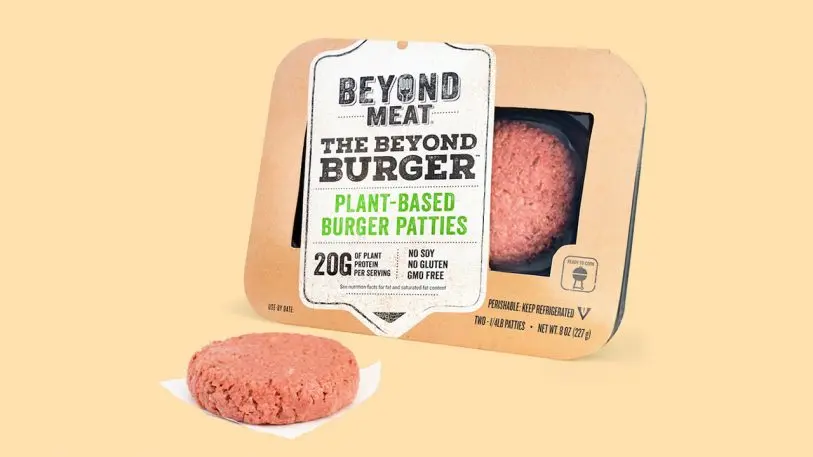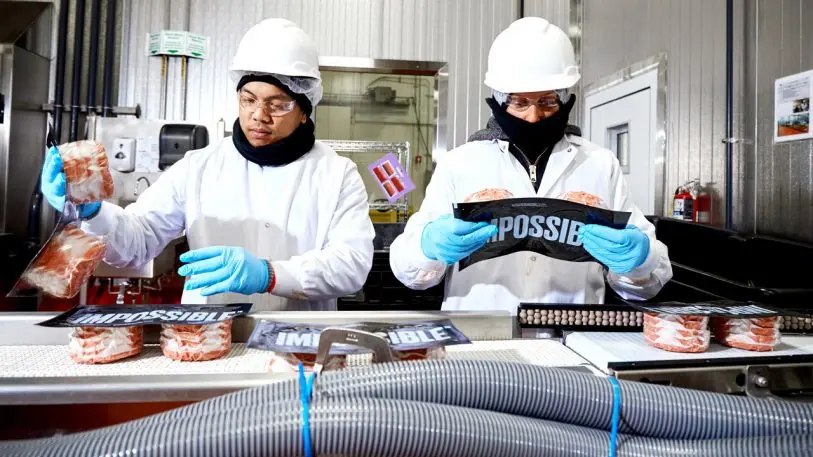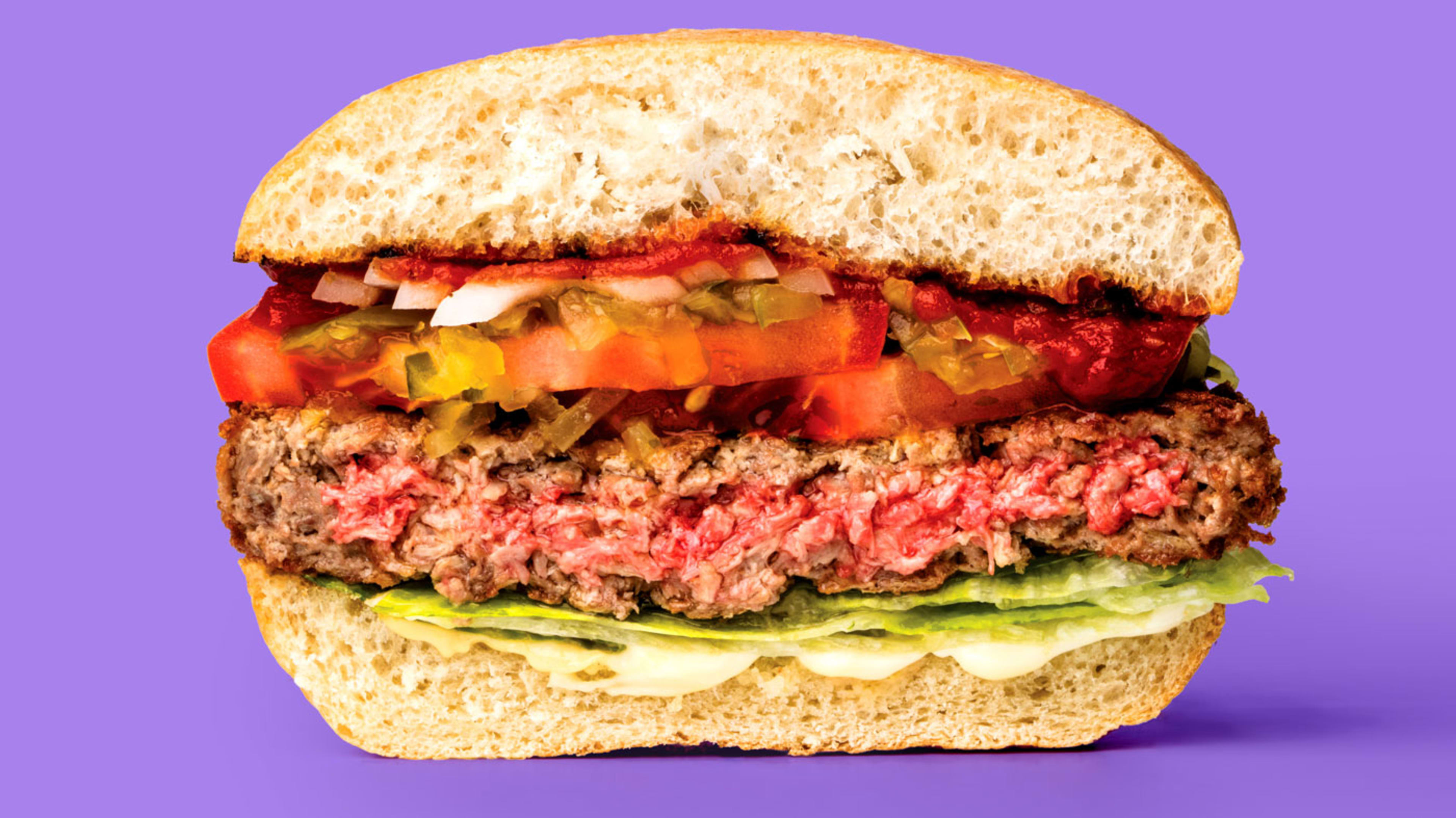In the first half of 2019, the Impossible Burger–the plant-based burger known for its ability to bleed plant-based blood–will be sold in grocery stores for the first time. Good Catch, a startup making fish-free tuna and crab-free cakes, plans to launch in February. And it’s possible that the FDA and USDA will approve the first chicken grown from chicken cells in a bioreactor for sale in restaurants.
It means we could be at a tipping point for the post-animal meat industry. Sales of plant-based meat are growing; between August 2017 and August 2018, according to Nielsen data, dollar sales grew 23%. Beyond Meat, the California-based startup with a plant-based burger designed to look and taste like a beef burger, struggled to keep its product in stock at Whole Foods, and had to postpone its rollout to the U.K. because it couldn’t keep up with demand. The company tripled its production capacity in 2018.

The growth is driven by new products that are nothing like traditional veggie burgers. “It’s a real shift in the meat alternative category from what it had been for decades, where most of the products were designed mostly for vegetarian and vegan audiences and weren’t trying to directly replicate conventional meat,” says Caroline Bushnell, who studies the market for plant-based meat at the nonprofit Good Food Institute. “In the last few years, as we’ve seen more companies innovating and thinking of their market base as all consumers and meat eaters…the way these products are being innovated and produced has really evolved.”

It’s still a tiny category–slightly less than 1% of all retail meat dollar sales go to plant-based meat. But the industry is at a similar point now as plant-based milk was a decade ago, says Bushnell. Soy milk, almond milk, and other products in that category now make up 13% of overall milk sales; more than a third of American households now buy plant-based milk. In part, that shift happened because the products moved from the center aisles of grocery stores to the dairy case next to milk from cows. “It opened up the category to a whole new group of consumers who just didn’t know the product existed before,” she says.
Something similar is beginning to happen now for plant-based meat–Beyond Meat, for example, refuses to sell to retailers that won’t place its products in the meat case at stores. Target’s frozen aisle uses the label “plant-based protein” for products that are labeled “vegetarian” at other stores. As more products come to retail stores, like the Impossible Burger, consumer awareness will continue to grow. The traditional meat industry is also likely to continue to invest in startups in the space, giving them the resources to ramp up both marketing and product development.
“All indicators are that [investment from large companies] will continue to increase,” says Bushnell. “I think an interesting parallel can be made to the natural and organic space. For many years, I think a lot of big companies thought that was going to stay kind of niche, and left it to the smaller companies that were catering to those natural and organic consumers. And then very quickly that changed.” It’s now well on the way to becoming mainstream. Kroger, the largest grocery store chain, named plant-based food one of its top trends of 2019. Walmart is stocking both larger brands, like Beyond Meat, and products from smaller startups, like No Evil Foods, which makes a plant-based version of pulled pork.
Plant-based meat is also growing in restaurants. The Impossible Burger, for example, is now available in more than 5,000 restaurants, including fast food chains like White Castle. All-vegetarian or vegan chains like Veggie Grill, By Chloe, and Next Level Burger are adding new locations.

The next step that may happen in 2019 is more monumental: Regulators may approve the first meat grown from animal cells (but not a whole animal) for consumption (though some companies expected it to happen by the end of 2017). A few products, such as chicken meat grown by the San Francisco startup Just, are already set to launch in restaurants in the form of foods like chicken nuggets, albeit at a price higher than McDonald’s; regulatory approval is the final step to bring them to market. For now, these products are grown to be made in a ground form, so they can’t replace all forms of farm-raised meat, and the price needs to come down. But because it’s actually made from animal cells, and tastes exactly like “real” meat–and the startups making it consider it meat, just made in a different way–they hold the potential to convince many more meat-eaters to avoid beef, pork, or chicken from factory farms. The number of options is also growing: Aleph Farms, an Israeli startup, expects to complete the technological development of its platform for a cell-based steak by the end of 2019. We’re one step closer to Richard Branson’s prediction that within three decades, we’ll no longer be eating traditional meat at all.
Recognize your brand's excellence by applying to this year's Brands That Matters Awards before the early-rate deadline, May 3.
